Navigation
Install the app
How to install the app on iOS
Follow along with the video below to see how to install our site as a web app on your home screen.

Note: This feature currently requires accessing the site using the built-in Safari browser.
More options
You are using an out of date browser. It may not display this or other websites correctly.
You should upgrade or use an alternative browser.
You should upgrade or use an alternative browser.
Lens question
- Thread starter raffy997
- Start date
ronlane
What's next?
- Joined
- Aug 3, 2012
- Messages
- 10,224
- Reaction score
- 4,961
- Location
- Mustang Oklahoma
- Website
- www.lane-images.com
- Can others edit my Photos
- Photos OK to edit
Welcome. You should not use functionality or connectivity as long as you buy the Sigma lenses made for Canon mounting system.
Some will people will contest that the Sigma's aren't as good or sharp as the Canon lenses. (Mainly when comparing them to L lenses)
What do you like about the Sigma lenses, if I may ask?
Hope that helps.
Some will people will contest that the Sigma's aren't as good or sharp as the Canon lenses. (Mainly when comparing them to L lenses)
What do you like about the Sigma lenses, if I may ask?
Hope that helps.
Thank you I was looking to buy the 18-200mm f3.5-6.3 II just for an all round lens instead of the kit lens 18-55mm from canon and maybe a 50mm prime lens from sigma alsoWelcome. You should not use functionality or connectivity as long as you buy the Sigma lenses made for Canon mounting system.
Some will people will contest that the Sigma's aren't as good or sharp as the Canon lenses. (Mainly when comparing them to L lenses)
What do you like about the Sigma lenses, if I may ask?
Hope that helps.
- Joined
- Oct 16, 2012
- Messages
- 14,632
- Reaction score
- 7,562
- Can others edit my Photos
- Photos OK to edit
ronlane
What's next?
- Joined
- Aug 3, 2012
- Messages
- 10,224
- Reaction score
- 4,961
- Location
- Mustang Oklahoma
- Website
- www.lane-images.com
- Can others edit my Photos
- Photos OK to edit
Those would cover most of the stuff that someone may need. It's not the fastest lens, but I'm sure they can take sharp photos.
What will you be shooting? The reason I ask is because if you are going to shoot street, those would be fine, but if you were going to shoot highschool sports, You are going to struggle greatly with those lenses.
What will you be shooting? The reason I ask is because if you are going to shoot street, those would be fine, but if you were going to shoot highschool sports, You are going to struggle greatly with those lenses.
I was thinking of use the for street and landscapes but I might be using the for sports also! I'm kinda new at this...what do you recommend as a good beginner all round lens?Those would cover most of the stuff that someone may need. It's not the fastest lens, but I'm sure they can take sharp photos.
What will you be shooting? The reason I ask is because if you are going to shoot street, those would be fine, but if you were going to shoot highschool sports, You are going to struggle greatly with those lenses.
ronlane
What's next?
- Joined
- Aug 3, 2012
- Messages
- 10,224
- Reaction score
- 4,961
- Location
- Mustang Oklahoma
- Website
- www.lane-images.com
- Can others edit my Photos
- Photos OK to edit
In my opinion, the 50mm would be good for street and I could use the 18-200mm as well, depending on the time of day and lighting. For landscapes, the 18-200mm would be just fine, with a good solid tripod. Sports, that's a whole new game. The camera's and lenses you have mentioned will struggle a lot with low light conditions like Football at night and some gyms for indoor sports.
I am wanting the canon 24-105mm f/4 for my all around lens. It is one of the kit lenses for the 6D, 5D mk III camera's. It is a little more expensive than the ones you are looking at, but you pay for the constant aperture.
I am wanting the canon 24-105mm f/4 for my all around lens. It is one of the kit lenses for the 6D, 5D mk III camera's. It is a little more expensive than the ones you are looking at, but you pay for the constant aperture.
ok thank you for your help!In my opinion, the 50mm would be good for street and I could use the 18-200mm as well, depending on the time of day and lighting. For landscapes, the 18-200mm would be just fine, with a good solid tripod. Sports, that's a whole new game. The camera's and lenses you have mentioned will struggle a lot with low light conditions like Football at night and some gyms for indoor sports.
I am wanting the canon 24-105mm f/4 for my all around lens. It is one of the kit lenses for the 6D, 5D mk III camera's. It is a little more expensive than the ones you are looking at, but you pay for the constant aperture.
TCampbell
Been spending a lot of time on here!
- Joined
- Mar 31, 2012
- Messages
- 3,614
- Reaction score
- 1,556
- Location
- Dearborn, MI
- Can others edit my Photos
- Photos OK to edit
Thank you I was looking to buy the 18-200mm f3.5-6.3 II just for an all round lens instead of the kit lens 18-55mm from canon and maybe a 50mm prime lens from sigma also
Do you own a Canon body already (is this an "upgrade" to a new body... or will this be your first camera body?)
Canon (and the same is true of Nikon) don't publish any specs for the camera/lens interface. Companies like Sigma, Tamron, Tokina, etc. "reverse engineer" that interface and they test their work by checking to make sure everything works on all the camera bodies they have to test. This tends to be pretty good. But just occasionally a story comes out about an "old" 3rd party lens that won't work on a "new" camera body. That usually means something changed and the newer camera is taking advantage of something that the "old" lens didn't know about and was never tested for. This is not very common, but just occasionally it happens.
A bit about 18-200mm lenses...
These lenses fall into he "super zoom" category. You want one lens that covers all the focal lengths so that you don't have to swap lenses. DSLRs have "removable lenses" specifically because no one lens is ever the "best" lens. The ability to swap lenses gives you the ability to use a lens which is more optimal to your shooting situation.
For years, "prime" lenses (a "prime" lens is any lens that does not "zoom") were king and zoom lenses were... well... they were crap (all of them.) Pro shooters generally avoided them, but they sure were popular among consumers who wanted convenience. That was then. Fast forward many decades and the lens makers have learned a thing or two about how to make better zoom lenses. The high-end zooms have managed to get so good that it's getting hard to tell the difference between a prime and a zoom.
But this doesn't hold true of all zooms. It turns out it's easier to build a "less ambitious" zoom (which is what I call a lens that has a 3x zoom range). Divide the low number by the high number... e.g. 24-70 you'd divide 24 into 70 and discover that it goes in just shy of 3 times. So I call that a "3x" zoom (not because the image size is 3x life size.. but because the 70mm end is 3x the 24mm end (and yes, I'm rounding.)) A 70-200mm... that's another "3x" zoom (70 x 3 = 210... close enough to call it 3x).
If you push that to 5x... you're still probably doing ok.
But when you push that to 10x... now you're being REALLY ambitious. An 18-200mm lens is roughly an 11x zoom range. That's pretty aggressive. It's VERY HARD to make an 11x zoom and actually maintain good optical quality.
This is not to say an 18-200mm is no good... what I'm really trying to point out is that it's advantage is the CONVENIENCE. If you're traveling and have limited space to pack gear and you can only take ONE lens... that 18-200 might be your best choice. But if you're NOT traveling and you don't "need" the convenience, than your single 18-200mm lens isn't going to compete (optically) with what you might be able to do with a less ambitious zoom... and certainly won't compete with what a "prime" lens can do.
Selecting lenses is ALWAYS a game of trade-offs.
- Joined
- Oct 18, 2011
- Messages
- 6,070
- Reaction score
- 2,419
- Location
- Glasgow, Scotland
- Website
- www.petecrawford.co.uk
- Can others edit my Photos
- Photos OK to edit
I'd have a serious look at the Sigma 17-70mm f2.8-4 OS HSM Contemporary. Its a pretty kick ass lens for a crop frame body.
Well this would be my first dslr camera but I don't want to stick just with the kit lens so I was looking for something in addition to it...I'm kinda new at thisThank you I was looking to buy the 18-200mm f3.5-6.3 II just for an all round lens instead of the kit lens 18-55mm from canon and maybe a 50mm prime lens from sigma also
Do you own a Canon body already (is this an "upgrade" to a new body... or will this be your first camera body?)
Canon (and the same is true of Nikon) don't publish any specs for the camera/lens interface. Companies like Sigma, Tamron, Tokina, etc. "reverse engineer" that interface and they test their work by checking to make sure everything works on all the camera bodies they have to test. This tends to be pretty good. But just occasionally a story comes out about an "old" 3rd party lens that won't work on a "new" camera body. That usually means something changed and the newer camera is taking advantage of something that the "old" lens didn't know about and was never tested for. This is not very common, but just occasionally it happens.
A bit about 18-200mm lenses...
These lenses fall into he "super zoom" category. You want one lens that covers all the focal lengths so that you don't have to swap lenses. DSLRs have "removable lenses" specifically because no one lens is ever the "best" lens. The ability to swap lenses gives you the ability to use a lens which is more optimal to your shooting situation.
For years, "prime" lenses (a "prime" lens is any lens that does not "zoom") were king and zoom lenses were... well... they were crap (all of them.) Pro shooters generally avoided them, but they sure were popular among consumers who wanted convenience. That was then. Fast forward many decades and the lens makers have learned a thing or two about how to make better zoom lenses. The high-end zooms have managed to get so good that it's getting hard to tell the difference between a prime and a zoom.
But this doesn't hold true of all zooms. It turns out it's easier to build a "less ambitious" zoom (which is what I call a lens that has a 3x zoom range). Divide the low number by the high number... e.g. 24-70 you'd divide 24 into 70 and discover that it goes in just shy of 3 times. So I call that a "3x" zoom (not because the image size is 3x life size.. but because the 70mm end is 3x the 24mm end (and yes, I'm rounding.)) A 70-200mm... that's another "3x" zoom (70 x 3 = 210... close enough to call it 3x).
If you push that to 5x... you're still probably doing ok.
But when you push that to 10x... now you're being REALLY ambitious. An 18-200mm lens is roughly an 11x zoom range. That's pretty aggressive. It's VERY HARD to make an 11x zoom and actually maintain good optical quality.
This is not to say an 18-200mm is no good... what I'm really trying to point out is that it's advantage is the CONVENIENCE. If you're traveling and have limited space to pack gear and you can only take ONE lens... that 18-200 might be your best choice. But if you're NOT traveling and you don't "need" the convenience, than your single 18-200mm lens isn't going to compete (optically) with what you might be able to do with a less ambitious zoom... and certainly won't compete with what a "prime" lens can do.
Selecting lenses is ALWAYS a game of trade-offs.
iolair
No longer a newbie, moving up!
Seconded. I had this on my Canon DSLRs and it was my most used lens; I liked it so much that when I switched to Pentax it was the first lens I bought.I'd have a serious look at the Sigma 17-70mm f2.8-4 OS HSM Contemporary. Its a pretty kick ass lens for a crop frame body.
JacaRanda
Hobbyist Birdographer
- Joined
- Mar 20, 2012
- Messages
- 5,472
- Reaction score
- 2,628
- Location
- Orange County California
- Can others edit my Photos
- Photos OK to edit
I would also suggest using the kit lens for a while before purchasing anything (I did not follow my on advice).
You may find that you prefer street over landscape, or landscape over street, or maybe decide macro or wildlife/sports is what you enjoy most.
Holding off for a while may help you save $$, and buyers remorse. Buying used is a really good idea also!
You may find that you prefer street over landscape, or landscape over street, or maybe decide macro or wildlife/sports is what you enjoy most.
Holding off for a while may help you save $$, and buyers remorse. Buying used is a really good idea also!
TCampbell
Been spending a lot of time on here!
- Joined
- Mar 31, 2012
- Messages
- 3,614
- Reaction score
- 1,556
- Location
- Dearborn, MI
- Can others edit my Photos
- Photos OK to edit
Well this would be my first dslr camera but I don't want to stick just with the kit lens so I was looking for something in addition to it...I'm kinda new at this
If you go shopping for additional lenses before you understand the trade-offs between lenses and what each lens is likely to do for your photography... then your odds of being disappointed and having "buyer's remorse" are considerably higher.
There's nothing wrong with using a kit lens... and if you realize you're mostly shooting landscapes then buy a better landscape lens. If you're mostly shooting birds, buy a birding lens, etc.
You can use a website such as pixel-peeper.com to look at sample images produced by the lenses you think you might be interested in purchasing. Just realize two things when you use Pixel Peeper: (a) you're not getting HUGE sample images and you can hide a lot of flaws in a small-size image, and (b) you're largely looking at re-touched images... not straight-out-of-the-camera samples. This is because Pixel Peeper really just indexes Flickr images by searching their meta-data to determine what camera body and lens were used to capture the shot and then members rate the images up and down (so they show you the examples that were voted best at the front of the list.) But it does give you a nice idea of what the lens can do.
- Joined
- Sep 27, 2009
- Messages
- 582
- Reaction score
- 41
- Location
- FL
- Can others edit my Photos
- Photos NOT OK to edit
Ok I want to get a new camera ,Canon rebel t5i or 700d but I want to mainly use sigma lenses because I like them better. Will I lose any functionality or camera connectivity compared to the canon lenses?
You and me both. I can only tell you what works for me. When I first started out I ordered a body and a separate Canon lens. The lens was nearly useless because it wouldn't focus much closer than 8-10 feet. I next bought a Sigma 17-70mm macro. It was a great little lens and it focused close however it lacked an adequate zoom range. My next lens was the jackpot. That lens was the marvelous Sigma 18-250mm macro. It focuses very close and has an enormous zoom range. So these are the lessons I've learned. A usable lens, for me at least, must focus close and have a very wide zoom range.
Most of the time when people start talking about quality of the photograph they are often professionals. You're not. You're going to be walking around and taking photos in a wide variety of situations at a wide variety of distances. That means you need the most flexible lens possible. In my experience nothing beats the Sigma 18-250mm macro. It's very unlikely anyone will ever notice any theoretical lack of quality in your photos. It's not the fastest lens in the world but I've taken photos inside dark museums with it where flash wasn't permitted. That's one technique you will have to learn if you do that sort of photography. Hope this helps. Good luck.
Most reactions
-
 426
426 -
 292
292 -
 285
285 -
 270
270 -
 221
221 -
 204
204 -
 185
185 -
 179
179 -
 168
168 -
 166
166 -
 146
146 -
 133
133 -
 120
120 -
 95
95 -
I
94
Similar threads
- Replies
- 0
- Views
- 132

![[No title]](/data/xfmg/thumbnail/37/37607-69784b19e25bd0ba68e92ff4cfdfa8ff.jpg?1619738148)

![[No title]](/data/xfmg/thumbnail/37/37608-63b0d340b0972479217b548a4026df96.jpg?1619738149)
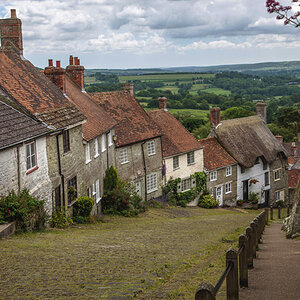
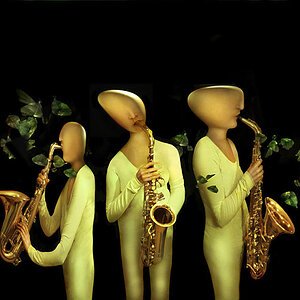
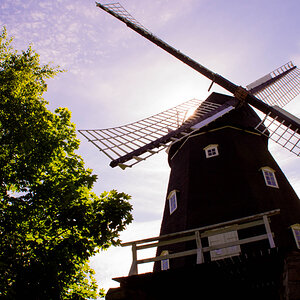
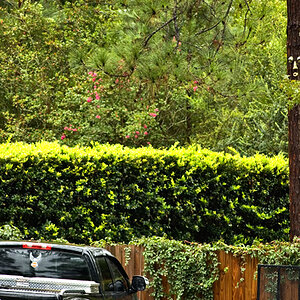
![[No title]](/data/xfmg/thumbnail/37/37628-b854997825aadb4eedaa3247baf8069f.jpg?1619738155)

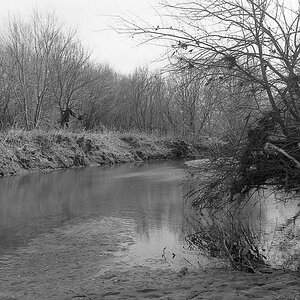

![[No title]](/data/xfmg/thumbnail/37/37632-06d8ff7f84d84f6ac01249ce8885d896.jpg?1619738156)